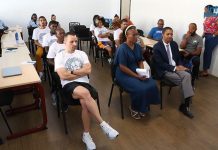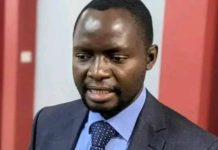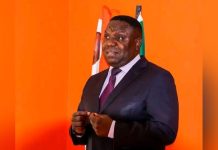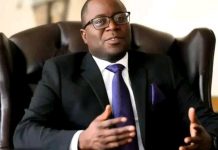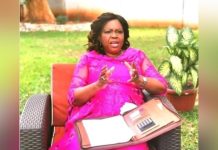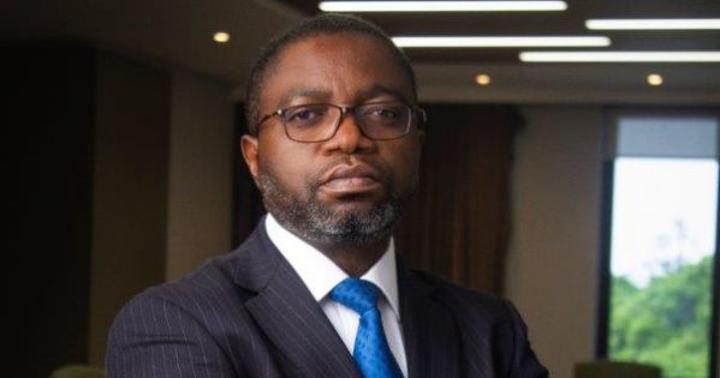
Africa-Press – Zambia. The 2021 General Election and the Possible Emergence of a Dominant Political Party and Life President
Introduction
The 12 August 2021 general election was held in an imperfect environment and yet the outcome is so perfect that it is hard to believe that it is a product of voters that were voting independent of each other and in secret.
To avoid a second ballot, and all the attendant uncertainties, the voters gave fourteen (14) opposition political parties 2.21% of the votes cast, which was exceeded by the rejected votes of 2.55%. Former President Edgar Lungu (ECL) received 37.72% of the votes while President Hakainde Hichilema (HH) received 57.51% making it impossible for ECL to challenge the results. ECL and HH received a total 95.24% of the votes cast.
Whilst the outcome of the presidential election is absolute, the same cannot be said about the parliamentary election.
The Patriotic Front (PF) headed by ECL won 38% of the seats, while the new ruling party the United Party for National Development (UPND) headed by HH secured 53% of the seats. The independent candidates combined won 8% of the seats.
The people gave UPND enough votes to push through its economic policies and govern the country, but they denied it the two thirds majority required to alter the constitutional framework or to sanction the criminal prosecution of ECL as former President.
Similarly, even PF working together with all the independent members of the National Assembly cannot undermine the UPND government.
In a world where democracy has been in regression the outcome of the Zambian election has renewed hope in the democratic experiment. It is being studied by both pro-democracy movements and undemocratic governments, especially in Africa.
Opposition parties on the continent want to understand how Zambians secured such a spectacular electoral outcome and oppressive governments have the same interest but for different reasons: to ensure that what happened to ECL and the PF does not happen in their own countries. This workshop, which is titled “Review of the 2021 General Election and Challenges Facing the UPND Government” is therefore very opportune.
As we celebrate the outcome of this election and the resultant improved standing of Zambia as a democracy, possibly with no equal on the African continent, the celebrations must be tempered by the reality of what we may have unintentionally
* Paper presented at CPD/ FES Post-Election Workshop – Review of the 2021 General Elections and Challenges facing the UPND Government, Protea Chisamba Lodge, Chisamba, 9 – 12 September 2021.
created through the ballot. There is a possibility that Zambia has birthed a political party (UPND) that is likely to be in power longer than any other in history and a President (HH) who is likely to be the de facto life President.
The 12 August 2021 general election is likely to the last democratic election in Zambia for a long time to come. The very election that renewed our faith in the democratic experiment is likely to kill or undermine it. There are a number of factors that have led to this dark possible conclusion, which I have explored below.
The Rise of HH as Possible Life President
Trauma Inflicted on the People by ECL and PF Makes HH The Messiah.
The trauma of living in a near failed state characterised by economic and social collapse caused by mismanagement, wastage, corruption, incompetence and in certain instances blatant theft of public resources at all levels of government is real. Any President that rescues the electorates from such a traumatic existence is likely to be viewed as a messiah.
To a saviour there may be no strict adherence to the constitutional term limit. The debate around such a messianic presidency is likely to be why he should not continue in office but not why he should stay in office beyond his term. Instead of laws being respected they may be lawfully amended to permit his continued stay in power.
There is already an example of such a president in Africa in the form of Paul Kagame of Rwanda.
Whilst the Rwanda genocide cannot be compared to what Zambians experienced under ECL, nonetheless the ravages of ECL’s rule still has an enduring impact on Zambians.
Some Zambians have remarked that they feel liberated. They are free once again. The electorates will embrace any leader that frees them from such misery. All the ingredients for the possible emergence of a de facto life President are present.
Weak Institutions. ECL and PF did not just leave behind a collapsed economy but also a weak constitutional order which may favour the rise of HH as a de facto life President.
The combination of an economy destroyed by corruption, mismanagement and wastage, and constitutional and statutory institutions and offices run by unqualified and corrupt individuals gives HH a free reign in the design of his agenda which prioritises the damage caused by ECL and PF whose scale is yet to be determined.
The holders of the corrupt institutions at all levels of government having debased themselves to serve ECL lack the moral capacity to check on HH. In the face of the strong mandate given to HH by the electorate their continued stay in their respective offices is dependent on HH. They are ready and willing to serve the new head of state and government to atone for their misdeeds for their own personal survival.
A traumatised people desperate for any improvement in their lives may see no harm in changing the law to allow HH continue in office beyond the two five years limit.
To such a people the departure of HH may mean the possible return to the dark days of lawlessness and plunder of public resources by ECL and FP.
HH Used His Money to Gain Political Power. There are unique qualities that HH possesses, which may cause the people to trust him to stay in power for as long as he may desire. He is the only person, although the extent of his financial wealth is unknown, who was not poor going to office of President.
All his predecessors were poor at the time of assuming the office of President, and used political power to gain some measure of wealth or financial comfort. On the other hand HH has used his wealth to gain political power.
In fact, the quest for the presidency has been at a great financial cost to him personally. He can legitimately claim to have ascended to the office of President to serve the people.
HH’s Focus on the Presidency. Also to be factored in this equation is his singlemindedness in seeking the presidency. It legitimises his claim to serve the people.
No President has spent as much time as leader of an opposition political party as HH. UNIP was founded in 1959 and in January 1964, Kaunda, its President, became Prime Minister and President on 24 October 1964.
The founding of Movement for Multi- Party Democracy (MMD) in 1990 and election of Chiluba as President in 1991, was an historical event birthed by internal and external factors, which cannot as an example. President Mwanawasa was an anointed successor of President Chiluba.
President Banda was a person in the right place at the right place following the demise of President Mwanawasa. The ascension of Sata to the office of President, arose in response to President Chiluba choosing Mwanawasa as his successor.
Sata was in opposition for ten (10) years and his pursuit for the presidency had no clear agenda other than to prove that like Kaunda, Chiluba and Mwanawasa he could also be President of Zambia.
HH was in opposition for more than fifteen (15) years before being sworn into office as the seventh President of Zambia. During that period he turned down a union with President Mwanawasa in 2006 general election.
He equally refused to work in an alliance with President Banda in the general election of 2011.
The offer by Sata for HH to be his deputy in an alliance for the purpose of 2011 general election, did not dissuade him from his mission to be President of Zambia on his terms. He instead countered that he should be the President of the alliance with Sata as his Vice- President despite the PF holding more seat in the National Assembly than UPND.
His refusal to succumb to these offers shows his disdain for opportunism and legitimises his claim to serve the people. Therefore, unlike ECL and PF who had a parasitic relationship with the people, HH is likely to have a symbiotic relationship with the people.
He may remain in the office of President as long as he satisfies the needs of the people that elected him. Once the needs of the people are met the debate
3
is likely to be why the Constitution should be amended to remove the term limit and not why the Constitution should be respected.
The Possible Rise of UPND as a Dominant Political Party
Political Fatigue. Since the return to the multi-party constitutional order in 1991, more political parties have been created than in any other period in the life of the Republic. However, most of them are defunct and of those that have survived the majority are briefcase political parties than viable political parties likely to threaten UPND’s hold on power.
The voters are tired of such political parties and the proof of that lies in the fact that the presidential candidates of the fourteen (14) political parties combined received 2.2% of the votes cast in the 2021 general election and the one (1) seat, which is essentially a UPND seat. It is therefore unlikely, should HH and the UPND meet their campaign promises to the people, that in the next ten years that a political party will emerge that is likely to challenge the UPND.
The last thirty years has shown that it is the people and not the founders that determine the life of a political party.
Political parties are not ideologically defined or driven and their electability is determined by how well they have identified the pressing needs and aspirations of the people and their response. The people will rally behind such a party and will abandon it when they are betrayed.
UPND’s hold on power is, therefore, likely to continue and allow it to morph into a dominant political party unless it fails to deliver on its commitment to the people.
PF More of a Crime Syndicate Than a Political Party. Although ECL received 37% of the votes and the PF won 59 seats it is unlikely that the party will survive long enough to grow and challenge the UPND.
Under ECL the PF ceased to exist as a party and became a vehicle for personal enrichment. The only thing that united its membership, including at a lower level, was its parasitic relationship with the government and government related institutions.
No effort was made to grow PF financially and structurally so that it can survive as an opposition party. With its flow of funds cut off, it is unlikely that it will survive and grow strong enough to challenge UPND.
Deliberate Campaign to Destroy the PF.
Zambia’s Presidential Parliamentary system of government is founded on the tenet that an opposition party is necessary for the proper working of the system.
The structure is supposed to operate on the premise that there exists some shared standards and rules of the game that permit peaceful inter-party collaboration or compromise in the process of political interaction. Unfortunately this idea has not taken root.
A political party on coming to power does not hesitate to employ its organisational weapons and exploit all options to deal with its opponents or members of the opposing party.
4
On ascending to power in 1964, Kaunda and the UNIP proscribed all opposition political parties that threated their hold on power. In 1972 the UNIP became the only legally recognised political party in Zambia.
After losing power to the MMD in 1991 general election the UNIP became the opposition party.
Through the amendment of the Constitution in 1996, the MMD destroyed the UNIP.
On attaining power in 2011, President Sata and the PF made the existence of MMD impossible.
The party that championed the return to a multi-party political order is now a political party in name only: it has no seat in the National Assembly.
The UPND has not restrained it from pursuing the same strategy. It has taken steps to destroy PF by petitioning for the annulment of the election results in more than 50 constituencies won by the PF.
With a compromised judiciary, the possibility of UPND winning most of these cases cannot be discounted. It only needs to win at least 18 more seats in the by-elections to secure two-third of the seats in the National Assembly and have enough votes to alter the Constitution should need arise.
There is a possible second phase in the quest to secure two-third of the votes in the National Assembly before the next general election in 2026, if UPND does not win enough seats in the by-election.
Most of the PF Members of National Assembly are likely to be arrested, indicted and convicted for various offences touching on theft of public funds before the end of 2026. That should force another set of by-elections, which UPND is certain to win.
Even if UPND does not secure two-third of the seats in the National Assembly during the life of this Parliament, but meets most its promises to the people, it is likely to win more than two third of the seats in the 2026 general election.
HH and UPND’s Focus on the Economy
Most post-colonial African countries, including Zambia, have had four major pressing needs on attaining independence.
The first has been to forge “the bonds of unity and nationhood, and to foster wider loyalties beyond parochial, tribal or regional confines.” Through the elections HH this need appears to have been met. His election was possible because the electorate was united beyond tribal or regional lines.
The second need entail converting a largely subsistence economy into a modern cash economy without unleashing social turbulence and economic chaos.
The third necessity is to industrialise the country and introduce a sophisticated system of agriculture. The ultimate end is to erase poverty, disease and illiteracy, raise the standard of living of the people, and in short create a modern state with all its trappings.
5
All incumbent Presidents and ruling parties were removed from power (President Kaunda in 1991, President Banda in 2011 and ECL in 2021) because they failed to meet these needs.
The Economic Experience Under Kaunda and UNIP.
The experience between 1964 and the end of the 1980’s shows that the electorate cares less about who is in power as long their basic needs are met. This partly explains why President Kaunda remained in power for nearly thirty (30) years.
His government took care of the people literally from the cradle to the grave.
It was partly for this reason that the people were able to vote in the referendum of 1969, in favour of the removal of the entrenched provisions of the Constitution meant to protect and benefit them.
It was on account of the economic well-being of the country that President Kaunda was confident enough, in 1972 without consulting the people or debate, to designate United National Independence Party (UNIP) as the only lawful political party in Zambia.
The people remained unmoved when the Independence Constitution was replaced by the one-party constitution of 1973.
It was also for the same reason that the country remained under a state of emergency from 1964 until 1991, when President Kaunda’s reign ended.
The existence of the state of emergency rendered the enjoyment of the rights and freedoms guaranteed by the Bill of Rights, as a discretion of those who wielded political power. There was no campaign calling for the end of the state of emergency.
Although external factors, such as the collapse of the Soviet Union and the emergence of unipolar world played a role, the end of the Kaunda presidency was caused largely by the collapse of the economy.
The social and economic infrastructure established in the few years immediately after independence lay in ruins.
The road network had collapsed, hospitals had no medicines and schools lay in a state of disrepair. The unemployment levels soared and people’s buying power tumbled.
The country’s external debt soared to an all-time high. By the middle of the 1980s the International Monetary Fund (IMF) had lent more money to Zambia than to any other country in Sub-Saharan Africa.
The country’s total external debt was about US$3.5 billion at the end of 1984. By 1986 it had risen to US$5.1 billion and US$6 billion by 1988. The impact of the debt was graphically presented on a per capita basis. It represented a debt in excess of US$700 for every Zambian, just about the worst in Africa at the time.
The Economy Under President Banda and MMD. After years of dutifully implementing the structural adjustment programme dictated by the international lending institutions, Zambia qualified for debt forgiveness based on the terms set by the G8 Summit at Gleneagles in Scotland in 2005. Its debt of over US$7 Billion was reduced to less than US$1 Billion.
6
By the end 2010 the economy had stabilised. The cancellation of external debt and the improvement in the price of copper helped the country financially.
The government was able to meet its budget without external assistance prompting President Banda to tell some of the diplomats that if they were not happy with the way things were in Zambia they were free to leave the country.
Despite these improvements the economy and corruption were some of the factors that led to President Banda losing power in the election of 2011.
Although the economy had improved there was no trickle-down effect to the people. The suspected award of government contracts to President Banda’s children and suspected direct involvement in the governance of the country did not sit well with the people.
That the MMD had been in power for twenty years did not President Banda.
It was time for change.
Sata was also able to convince the electorate that they had a raw deal under the MMD and he was their saviour. In desperation the people bought into the promise of “more money your pocket”, without questioning how this was to be realised.
There is no doubt that years of strict implementation of the structural adjustment programme had taken its toll on the people.
The mere promise of better economic opportunities was enough for them to vote in favour of Sata and PF.
Collapse of the Economy Under ECL and PF. The PF inherited a robust economy.
As of September 2011, when President Sata was sworn as President the exchange rate between the US$ and the Zambian Kwacha was about US$1 to about K4.00 (rebased); inflation was around 8% and the external debt was less than US$2 billion.
However, President Sata convinced the people that he could do better.
In ten years PF managed to wipe out all the gains the country had made in the twenty years of belt-tightening under the MMD rule.
At the time of the election on 12 August 2021, the admitted external debt was US$13 Billion and with the population at 18 million, the PF government managed to restore the debt per capita to the pre-1991 level of more than US$700 per person.
Debts were contracted and projects where undertaken and funded by government not on the basis of how they would benefit the economy and the people but how much those who wielded political would benefit.
Given this scenario and the experience of President Kaunda in 1991 and President Banda in 2011 it was impossible for ECL and PF the to win the 2021 general election. It was therefore difficult to comprehend the source of ECL’s and the PF’s confidence that they would win the election.
A win was possible only if ECL and the PF were to openly and blatantly steal the election. Fortunately, this they failed to do.
HH and UPND understand the nexus between the economic and social well-being of the people and the President’s and his party’s hold on power. They are unlikely to make the same mistake.
The indications are that they have given priority to the economy and they have international goodwill.
Renewed International Support and Interest in Zambia. There are strong indicators that despite the country’s high external debt, HH is likely to grow the economy to levels never seen before in the history of the country.
The optimism is borne out of a number of factors. ECL set a very low bar in the management of the economy and country in general. HH inherits power from a very corrupt and incompetent administration. The very prospects of the HH election win was enough to see the local currency gain its strength.
HH’s election has brought renewed confidence in the Zambian economy and simply arresting wastage, blatant theft of public resources the improvement to the economy is likely to be felt by the people.
HH has been elected at the time when there is renewed interest in democracy by Western countries and international organisations. Zambia is surrounded by countries with dominant political parties where competition for political power is more intra-party than inter-party.
Elections do not result in the change of the political parties in power. There is therefore cause to make Zambia an example of democratic success.
The Appointment of Musokotwana as Minister of Finance. That HH’s first ministerial appointment of Musokotwane as Minister of Finance shows that he has learnt from the mistakes of his predecessors and prioritised the economy.
Temptation to Remove Presidential Term Limit.
Whilst there is no limit to the number of years a political party can be the dominant party, the Constitution limits the number of times HH can hold the office of President.
It will require a high moral restraint on his part to resist the temptation to repeal Article 106(3) of the Constitution and remove the term limit.
So far no President in Zambia has exercised or exhibited such restraint.
Despite ruining the country’s economy during his 27 year rule Kaunda was determined to stay on as President. Even after losing the election of 1991, Kaunda was still strong- minded to contest the election of 1996.
Despite the existence of express constitutional provision limiting the number of times one could contest for election to the office of President, President Chiluba entertained the possibility of removing the term limit and contest for election to the office of President for the third time in 2001.
Again, notwithstanding the express provision in Article 106(3) of the Constitution that “A person who has twice held office as President is not eligible for election as President” ECL with the help of a Constitutional Court he packed managed to secure his name on the presidential ballot paper.
Conclusion
To maintain the vibrance of the Zambian democracy there is need to counter the possible emergence of UPND as a dominant political party and ensure that HH holds the office of President twice only.
The starting point on this mission is to revitalise the constitutional order decimated during the reign of ECL and the PF by ensuring that constitutional institutions and offices are occupied by people that are qualified.
This demand must be driven by people.
The renewal of the constitutional order must be coupled by a deliberate and conscious decision to birth a strong opposition party to rival the UPND.
Thereafter the right to govern should be given to the presidential candidate and party that will meet the needs and aspirations of the people.
Finally, there is also need to change the voters’ mindset.
They need to embrace the notion that politicians are elected to serve them and when they do improve their well- being that achievement should not be perceived as a favour but as their entitlement. They should always ask for more from those they give the mandate to govern.


